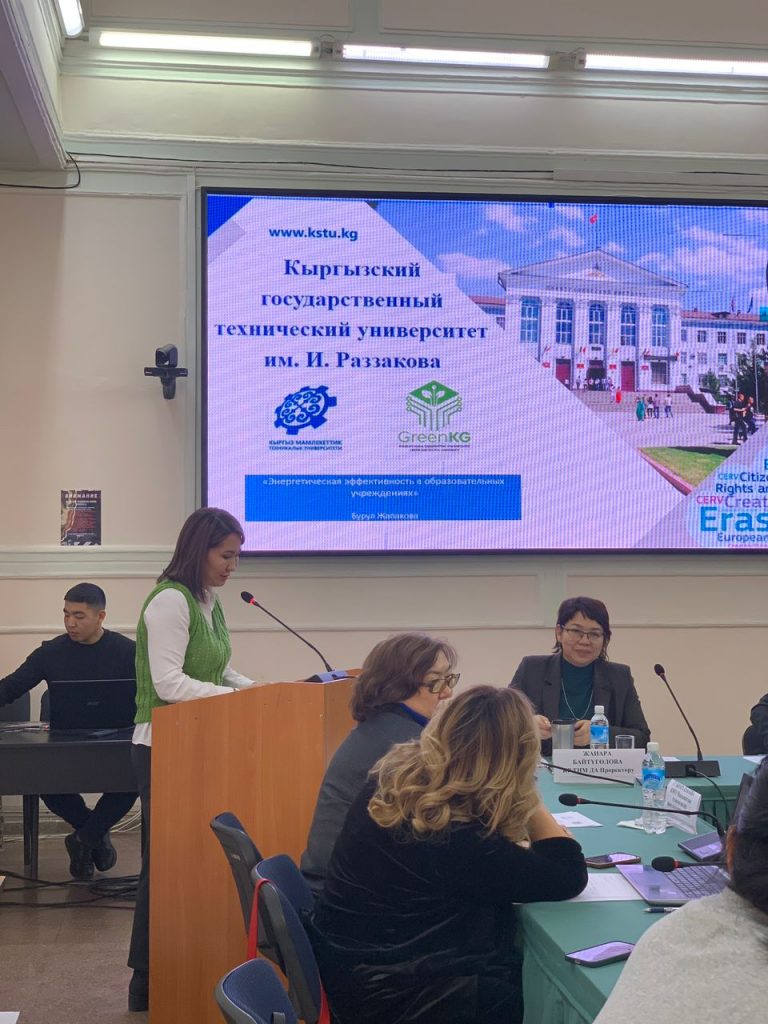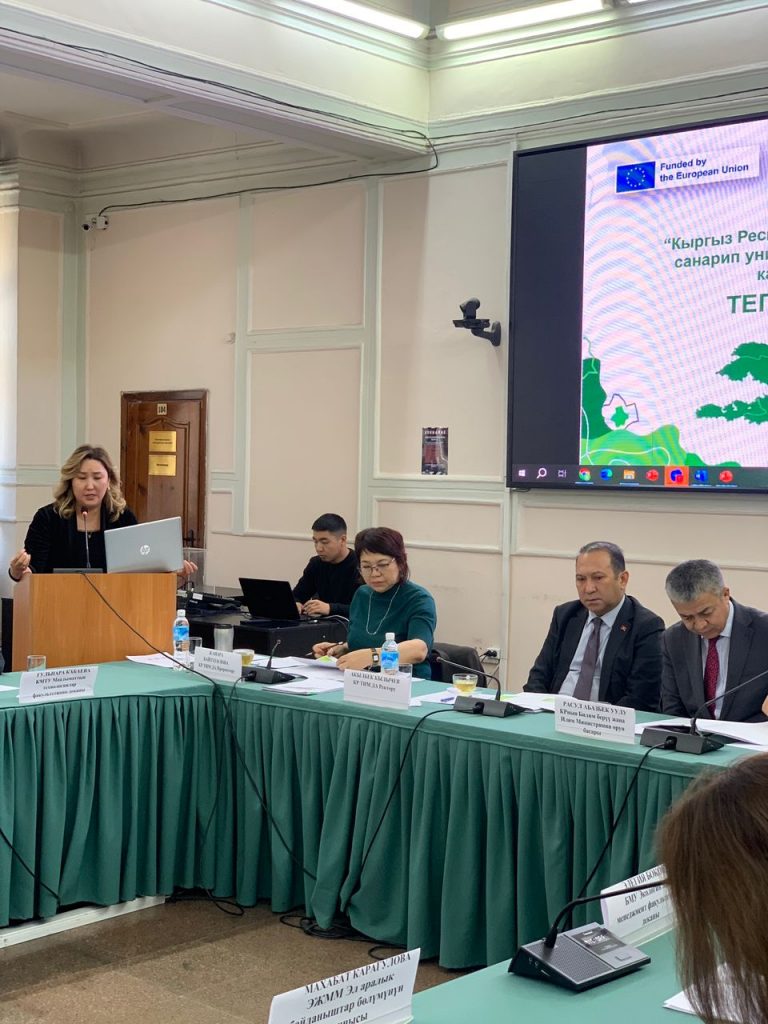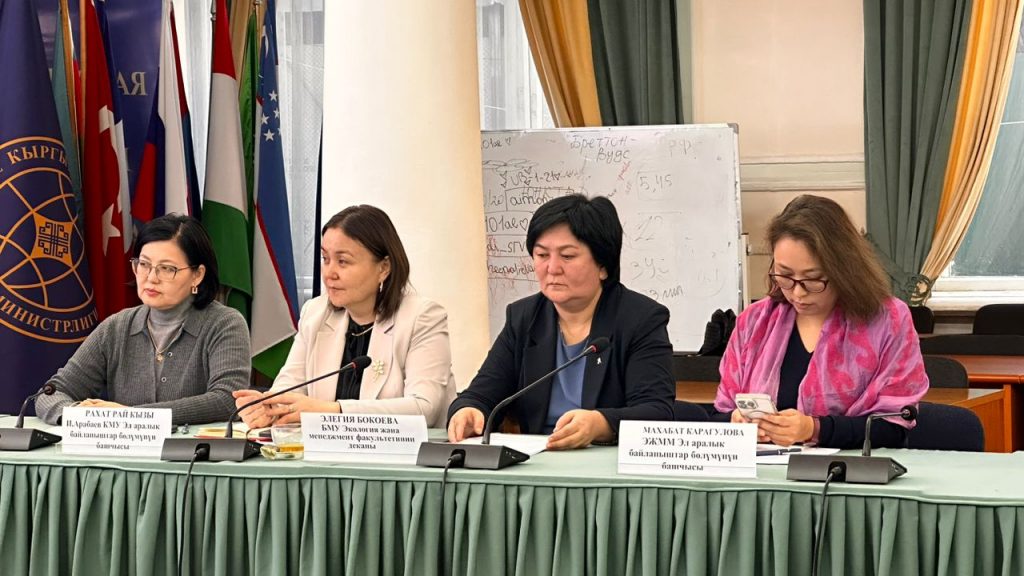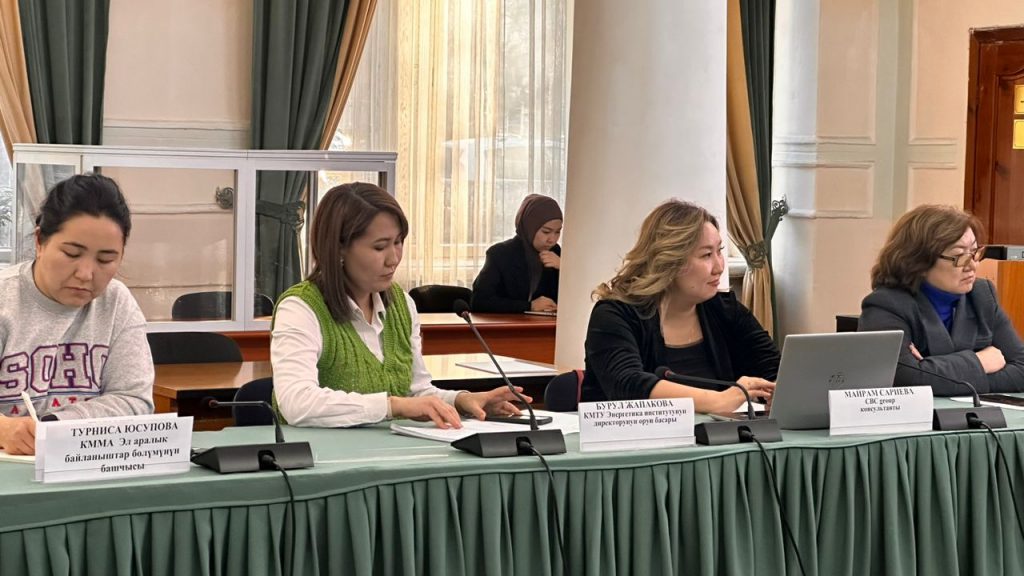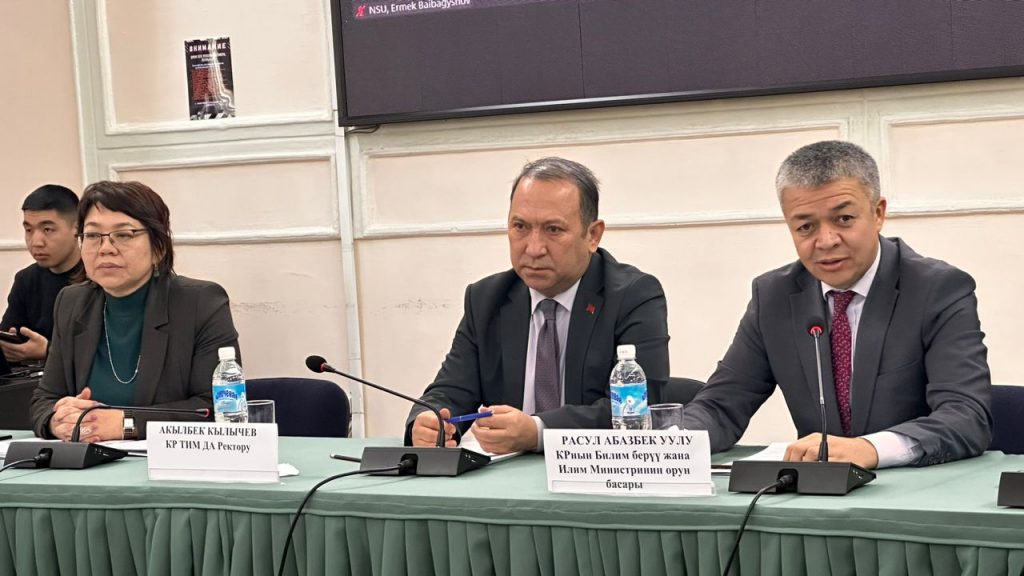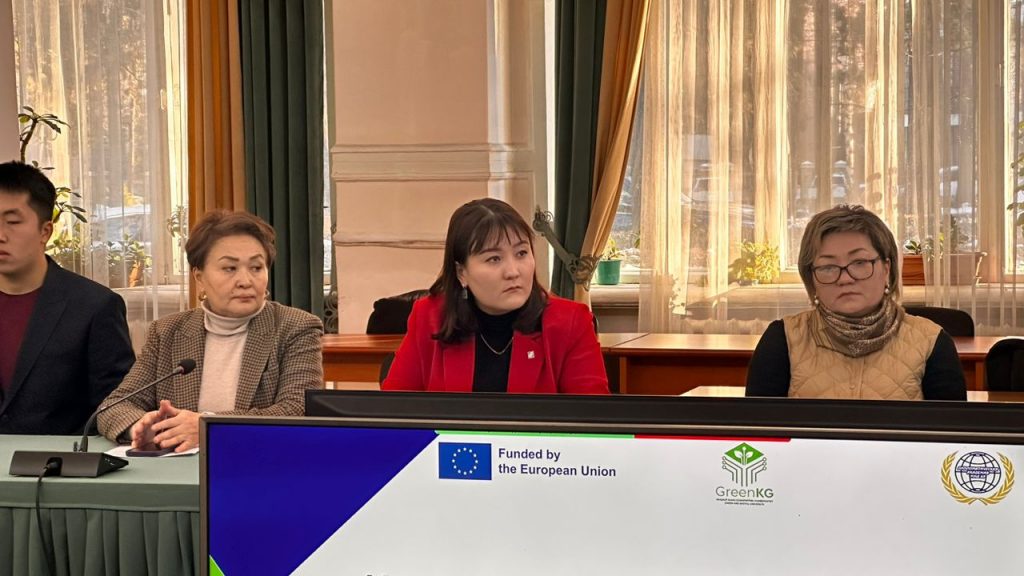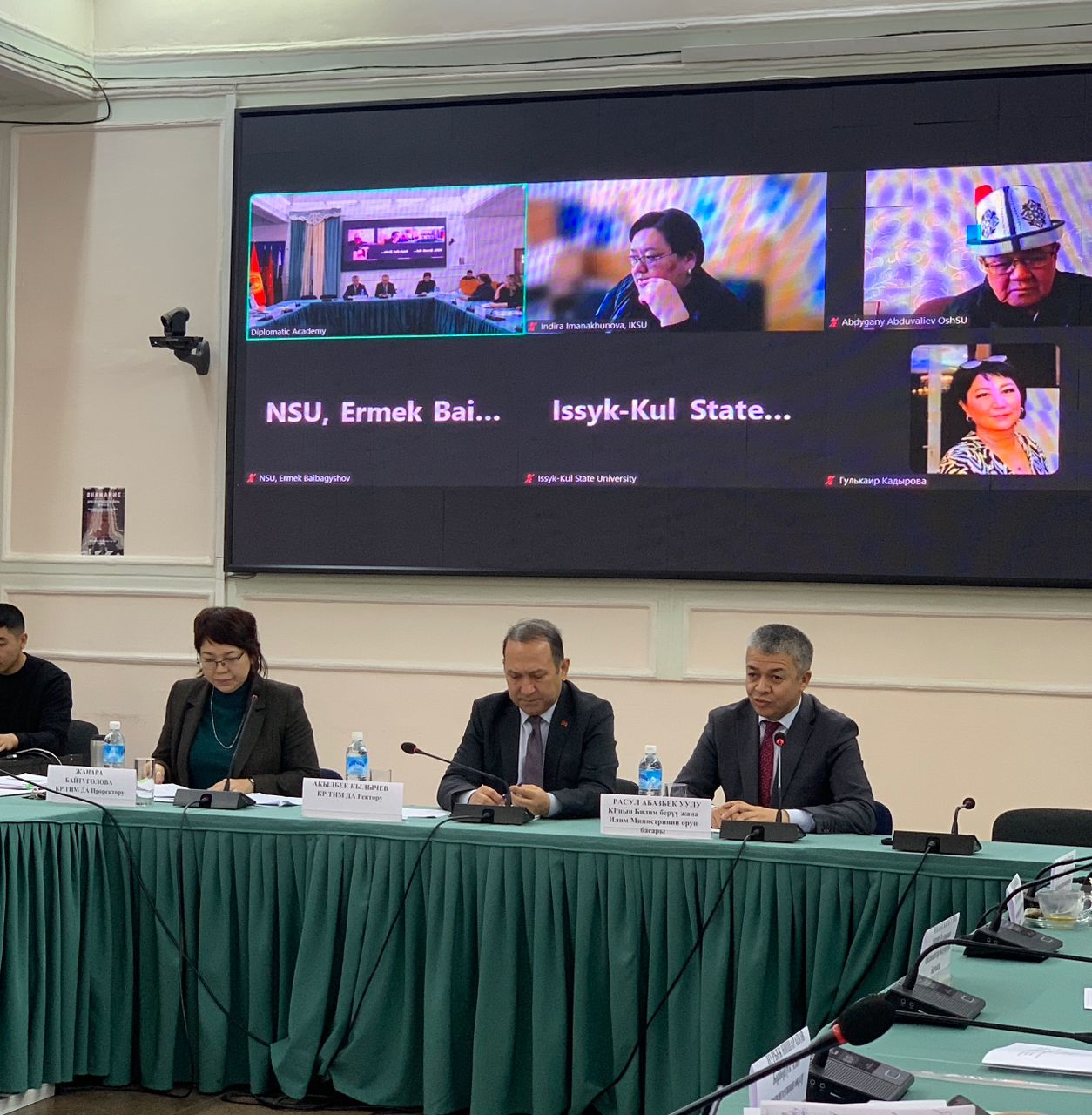Formation of the Model for Green and Digital Universities in the Kyrgyz Republic
On December 13, 2024, a roundtable discussion on the development of the «green» and «digital» university model in the Kyrgyz Republic was held in a hybrid format at the Diplomatic Academy of the Ministry of Foreign Affairs of the Kyrgyz Republic. The event was part of the implementation of the international ERASMUS+ GREENKG project, which involves 10 universities in Kyrgyzstan, the Hamburg University of Applied Sciences (Germany), Vilnius University (Lithuania), and the Capacity Building Consulting Group. The project aims to introduce sustainable and digital solutions into the higher education system, a critical component of modernizing Kyrgyzstan’s educational environment.
The event took place in the conference hall of the Diplomatic Academy and brought together representatives of educational institutions, government bodies, and experts in sustainable development and education digitalization. The meeting was moderated by Janara Baytugolova, project coordinator and Vice-Rector of the Diplomatic Academy of the MFA KR.
In his welcoming speech, Dr. Akylbek Kylychev, Rector of the Diplomatic Academy of the MFA KR and Professor of History, highlighted the significance of the ERASMUS+ GREENKG project for Kyrgyzstan. He emphasized the importance of creating a national model for «green» and «digital» universities, which would not only improve education quality but also contribute to the country’s sustainable development.
Deputy Minister of Education and Science of the Kyrgyz Republic Rasul Abazbek uulu also expressed his support for the project, underlining that the development and implementation of the «green» and «digital» university model will form a crucial part of the state strategy for modernizing the educational system.
The key topics discussed during the roundtable included:
- Development of the National Model for Green and Digital Universities: A presentation by Janara Baytugolova focused on the core elements of the national model for sustainable and digital university development, drawing from the experiences and best practices of other countries.
- Energy Efficiency in Educational Institutions: Buruul Zhapakova, Deputy Director of the Energy Institute at I. Razzakov KSTU, presented recommendations for improving energy efficiency in universities, a vital aspect of the «green» university concept.
- Green HRM: Mairam Sariyeva, a consultant from the Capacity Building Consulting Group, discussed the implementation of environmentally oriented human resource management practices to create sustainable and effective universities.
Special attention was given to the development of a national model adapted to the specific needs of Kyrgyzstan. Participants explored potential ways to integrate sustainable and digital technologies into university infrastructure and educational processes. As a result, a series of recommendations was formulated to support the implementation of these models in the universities participating in the ERASMUS+ GREENKG project and across the national educational system.
The event concluded with the signing of a resolution summarizing the key findings and recommendations for introducing and promoting the national model for «green» and «digital» universities in Kyrgyzstan. Additionally, student startups showcasing innovative approaches to sustainable development and digitalization were presented during the roundtable.
Representatives from the following institutions participated in the event: Kyrgyz State University named after K. Karasaev, Kyrgyz State Medical Academy named after I. Akhunbaev, Kyrgyz State Technical University named after I. Razzakov, Kyrgyz-Turkish University named after I. Arabayev, IBS, Naryn State University, UCA, Osh State University, Batken State University, Issyk-Kul State University, and the company CBCgroup.
The ERASMUS+ GREENKG project will continue its efforts to foster an innovative and environmentally sustainable educational environment in Kyrgyzstan, contributing to the modernization of higher education and the preparation of specialists
